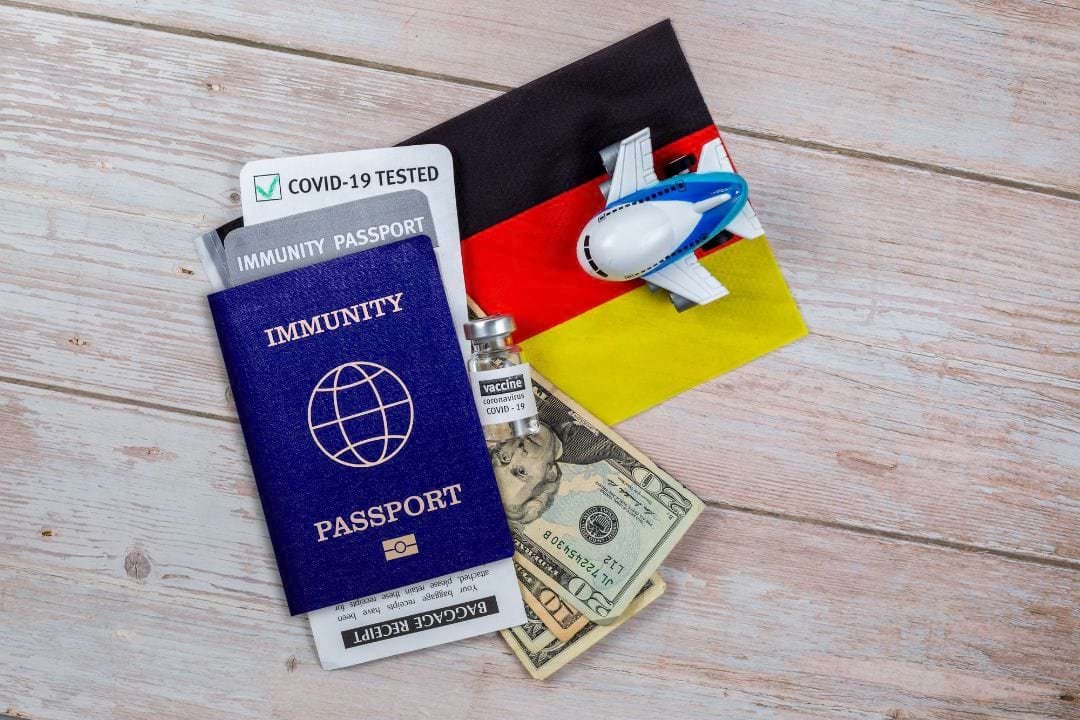New Citizenship Law Approved: The German Federal Cabinet approved a draft law from the Federal Ministry of the Interior and Community (BMI) that will simplify the laws and processes for foreigners seeking citizenship.
The new regulations would reduce the time spent residing in Germany from eight to five years, and they will award citizenship to children born there if at least one parent has resided there for five years.
Even after just three years, applicants who can demonstrate a high level of integration in Germany and have a high level of German language proficiency may be granted citizenship.
Long-term residents of Germany who are foreigners, particularly so-called guest workers who arrived in the 1960s and 1970s, will only need to pass an oral exam instead of a written one.
Dual or multiple citizenships are permitted, but if a person "joins the armed forces or a comparable armed association of a foreign state or by concrete participation in combat operations of a terrorist organization abroad," their German citizenship will be revoked.
These modifications, however, would only be applicable to those who have been granted full residency and employment rights during this time and have a clean criminal record.
Who does not qualify?
Those who have committed significant offenses, such as assaults with racial overtones, will not be permitted. According to the new law, citizenship in Germany will not be granted to those who have engaged in antisemitic, racist, xenophobic, or other defamatory behavior that is "irreconcilable with commitment to the free democratic basic order."
Foreign nationals who are reliant on government assistance will not be eligible for citizenship until they do so.
Also ineligible are asylum seekers who have been able to stay in Germany for a considerable amount of time as a result of a suspension on deportations to their native country.
Applicants must demonstrate that Germany is their place of residence and/or that their source of income is there.
Those who are "married to more than one spouse simultaneously, or show by their conduct that they disregard the equal rights of men and women as specified in [Germany's] Basic Law" will not be eligible for citizenship in Germany.
Around 5.3 million of the 12 million foreigners residing in Germany now have been there for at least ten years, according to government statistics. Only 2.45% of all foreigners who have lived in Germany for more than 10 years in 2021 chose to become German citizens, a record-low naturalization rate that is frequently linked to Germany's prohibition on dual or multiple citizenship.
Germany issued the most work visas to Indians in 2022: Germany granted the most work visas to Indians in 2022. Indians received a total of 17,379 national work visas last year, out of the 152,336 total national work visas issued to foreigners. The majority of these, 8,613 work visas, were issued by the German Consulate General in Bengaluru.
According to the Federal Foreign Office of Germany, the German Consulate General in Mumbai (3,013) granted the second-highest number of work visas for Indians, followed by the Consulate General in Chennai (2,483), the German Embassy in New Delhi (2,434), and the German Consulate in Kolkata (836).
Following Serbs, Turkish nationals are the second-largest recipients of work visas from Germany.
8,930 visas in this category were awarded to Indian citizens, making it the country with the highest number of such visas overall. Iran came in last on this ranking, ahead of Lebanon, Russia, Kosovo, and Turkiye.
Additionally, according to data from the German Federal Foreign Office, the third-highest number of national visas were issued in 2022 for academic pursuits. India received 17,268 of the 71,018 student visas that Germany issued to foreign students in 2022, followed by Turkey (7,176) and China (7,077).
Germany introduces the Nursing Studies Strengthening Act, which aims to close gaps in training allowances, encourage more people to pursue careers in nursing, and make it easier to recognize international degrees by establishing guidelines for the range of information that must be provided and the documents that must be submitted in an effort to lessen staff shortages in this field.
With the new regulations, nursing professionals in Germany will be more easily accessible to those with degrees from international universities. The Act suggests using knowledge tests or adaptation courses in place of complete equivalence exams.
30 digital scholarships are offered by the German Academic Exchange Service. The German Academic Exchange Service (DAAD) is offering 30 digital scholarships to students who desire to earn a master's degree but are unable to do so owing to a variety of reasons, including family obligations and health issues.
Students can choose to take their master's courses entirely online or in a hybrid model that combines both online and traditional classroom instruction. Under this program, students from all disciplines—aside from those who want to study art or architecture—can get a master's degree at a foreign university.
Every year, the DAAD will give away 30 digital scholarships, and anyone can apply, regardless of where they are from.
According to Erudera, a global higher education search engine, there were 440,564 international students in Germany as of 2022, including 33,753 students from India and 40,055 from China.

